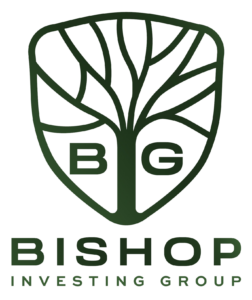
We all desire financial freedom, but what exactly is it? Becoming financially free is the state of being unconfined by the constraints of living paycheck to paycheck. It’s the stage where your savings, investments, and passive income sources can comfortably cover your living expenses, allowing you to live life on your own terms.
Financial freedom signifies not just an accumulation of wealth, but the freedom to use your time as you wish. This could mean pursuing hobbies, traveling, starting a business, or even retiring early. Financial freedom is about attaining enough security and sustainability to make choices that are not solely dictated by immediate financial needs.
The pursuit of financial freedom is a reflection of our desire for autonomy, stability, and security. It offers peace of mind that stems from knowing that unexpected expenses or financial emergencies won’t throw us into chaos. At a deeper level, achieving financial freedom empowers us to shape our lives and futures according to our unique desires and aspirations, rather than the demands of economic necessity. In this article, we’re going to explore some of the hurdles investors face on the path to their financial goals and discover how to become financially free.
Why It’s Difficult to Achieve Financial Independence Today

Higher Cost of Living
Today, the ability to become financially independent is undeniably more challenging, especially for the younger generation. This difficulty is a result of numerous interconnected factors. The first of these is the global rising cost of living. Despite wages largely being at a standstill for the past few decades, the expense of housing, education, healthcare, and even basic necessities have constantly increased. For instance, research has shown that the median home price in the U.S. increased by about 32% from 2020 to 2023.
Economic Uncertainty
Financial freedom means having enough money to cover your living expenses without being obligated to a 9 to 5 job. But, reaching this kind of freedom is further complicated by recent economic uncertainties. Unpredictable events, like market crashes and the effects of the COVID-19 pandemic, have highlighted the unpredictable nature of the global economy, leading to extensive job loss and financial hardship. This instability can make it difficult for people to plan for long-term financial objectives, create a monthly budget, and establish a sense of stability.
Lack of Financial Education
Student loan debt, a general lack of financial knowledge, and insufficient mentorship and guidance pose additional challenges. Moreover, personal complications like poor health condition without proper health insurance can lead to expensive medical bills, adding to the financial burden. Additionally, sudden expenses like unplanned vacations may drain savings accounts or increase the overall debt, creating even more hurdles to overcome.
However, as overwhelming as it may seem, it’s crucial to understand that achieving financial freedom is a journey, not an end goal. It necessitates diligent planning, consistent investing, and tracking expenses. Good spending habits, such as saving money and contributing to retirement accounts, can aid in building substantial retirement savings. It also requires personal resilience to withstand unpredictable economic fluctuations.
Understanding Financial Freedom

Financial freedom is more than just a state of wealth. Ideally, it’s a multifaceted concept that ultimately provides you the liberty to live life on your terms, unshackled by financial constraints. It signifies a point where your assets, including savings, investments, and income from passive sources, sufficiently cover your living expenses without active employment or dependency on others. The journey toward this coveted state involves cultivating a savings culture, starting an investment journey, and exploring passive income opportunities. Let’s look at these more keenly.
I. Cultivate a Savings Culture
Establishing a disciplined savings culture is the bedrock of financial freedom. The significance of building an emergency fund in your bank account cannot be emphasized enough. Typically, savings act as a financial safety net, offering support during unanticipated circumstances and can also supply the initial capital for your investment adventures. Putting money consistently into savings accounts ensures that you are not living from paycheck to paycheck, giving you a degree of financial comfort and stability.
II. Start an Investment Journey
Initiating your investment journey is a crucial step towards achieving financial freedom. Smart investments, guided by experienced and knowledgeable financial advisors, have the potential to expand your wealth considerably, taking you closer to your financial independence ambitions. Your investment journey can start small. For example, investing a portion of your salary or savings in a diversified stock portfolio, bonds, mutual funds, or consulting with mortgage lenders and real estate professionals about opportunities in the property market. The trick is to start by gaining financial literacy, learning and evaluating your risk tolerance, and steadily building a well-rounded investment portfolio that aligns with your financial future and retirement goals.
III. Learn about Passive Income Opportunities
One of the key components of financial freedom is the ability to generate passive income. Passive income generalizes earnings originating from business ventures where a person is not actively involved or are less time-intensive. These could include dividends from stocks, income from rental properties, or proceeds from a side business. The objective is to establish multiple income streams that can produce cash flow with minimal involvement, hence allowing you to allocate your time according to your preferences. Financial freedom connects to financial security, control over your time, and mental peace. While the path to achieving financial freedom demands effort, patience, discipline, and meticulous personal finance management, the potential of living life on your own terms makes it worth it.
Common Strategies for Achieving Financial Freedom
Achieving financial freedom is a process that requires careful planning, steadfast discipline, and a clear understanding of financial management. Here, we outline the significant steps that can potentially set you on this path.
Establishing a Financial Plan
Your journey begins with creating a clear and robust financial plan. The first step in this plan is setting realistic financial goals. These goals should align with your overall financial desires which could range from being debt-free to owning a home or accumulating a specified amount for retirement. Next, you need to devise a budget that accounts for all your income and expenses. The budget should prioritize savings and aim to curtail unnecessary expenditures, creating a surplus that can be directed towards your investments.
Build an Emergency Fund
An emergency fund is a financial safety net designed to cover unexpected expenses or financial emergencies. The size of this fund can vary depending on your personal situation, but a general guideline is to have enough to cover three to six months’ worth of living expenses. This fund provides financial security, allowing you to handle unforeseen costs without destabilizing your financial progress.
Eliminating Debt
Eliminating debt, particularly high-interest debt like credit card debt is critical in the journey towards financial freedom. High-interest debt can rapidly accumulate, eroding your income and savings. Develop a strategy to reduce and ultimately eliminate this debt. This could involve consolidating your debt, negotiating lower interest rates, or using a debt repayment strategy like the ‘avalanche’ method (where you pay off debts with the highest interest rates first) or the ‘snowball’ method (where you pay off smaller debts first to gain momentum).
Increasing Your Income Streams
Increasing your income accelerates your journey to financial freedom. This could involve enhancing your career to secure promotions and raises, starting a side business, or developing a skill that can be monetized. In addition to active income, focus on generating passive income through investments. The aim is to have multiple income streams, reducing dependency on a single source.
Start Investing
Investing plays a pivotal role in wealth creation. It involves putting your money in ventures that have the potential to earn strong returns, helping to grow your wealth over time. It’s crucial to diversify your investments across various asset classes such as stocks, bonds, and real estate, to optimize returns and minimize risk. An understanding of different investment vehicles, their risks, and potential returns is necessary to make informed investment decisions.
Real Estate Investment as a Path to Financial Freedom

Despite the challenges of achieving financial success, real estate investing provides a tangible opportunity to gradually build wealth over time. The demand for housing and commercial properties continues to grow, especially in booming urban areas. Moreover, with the advent of real estate investment trust funds (REITs), even those with limited capital can partake in the real estate market, earning income through dividends and benefiting from capital appreciation.
Overview of Real Estate Investing
Real estate investing is an alluring route pursued by many investors because it holds a viable potential to create and exponentially grow wealth. Successful real estate investors understand that the industry extends far beyond the simple act of purchasing a property – it’s about strategically leveraging the real estate market’s nuances to increase the likelihood of generating lucrative returns.
One of the foundational forms of real estate investments is residential properties. These often manifest as rental properties, serving as a steady source of income for many investors. For those with an appetite for larger returns and corresponding risks, commercial real estate investing is another potential avenue. Commercial properties (office buildings, retail centers, and industrial properties) present opportunities for stable, long-term income. Other real estate investment avenues include Real Estate Investment Trusts (REITs), short-term rental properties, and Bishop Investing Group’s niche, real estate syndication.
Popular Types of Real Estate Investment Opportunities
The realm of real estate investing is vast and diverse, offering a myriad of opportunities to investors seeking to build and grow wealth. Here, we’ll explore the key types of real estate investments, each with its own unique advantages, risks, and potential for returns.
1. Residential Real Estate Investments
Residential real estate is a common entry point for many investors. This category includes single-family homes, apartments, townhouses, vacation houses, and other residential dwellings. Investors can earn income by renting out these properties to individuals or families, who then pay rent on a monthly or yearly basis. The benefits of residential real estate investing include steady cash flow from rents and potential appreciation of the property over time.
2. Commercial Real Estate Investments
Commercial real estate investing involves acquiring properties used for business purposes. This could include office buildings, retail spaces, warehouses, and industrial facilities. Commercial leases are typically longer than residential ones, offering investors steady, long-term cash flow. Additionally, commercial properties often have multiple tenants, spreading the risk and providing a more reliable income stream. However, commercial real estate can be more complex to manage and requires a higher initial investment compared to residential real estate.
3. Real Estate Investment Trusts (REITs)
REITs offer investors a way to get involved in real estate without the need to own physical property. They are companies that own, operate, or finance income-generating real estate and allow investors to buy shares, much like they would with other stocks. This gives investors the chance to earn a share of the income produced through real estate investment without having to buy, manage, or finance any properties themselves.
4. Multifamily Real Estate Investments
Multifamily real estate investments involve properties designed to house multiple families in separate housing units. Examples include duplexes, triplexes, and apartment complexes. Much like residential real estate, investors can earn income through rent, but the potential income is often higher due to the multiple units involved.
5. Land Investments
Land investing involves the purchase of raw, undeveloped land with the intention of selling it at a profit in the future or developing it for rental or commercial use. Land investing can offer high returns but also comes with risks such as zoning restrictions and the lack of income until the land is developed or sold.
Each type of real estate investment offers its own mix of risks and rewards, and the best choice depends on your financial goals, risk tolerance, investment capital, and level of expertise in real estate investing. Regardless of the type chosen, real estate investing can be a potent tool for wealth creation and a significant step towards achieving financial freedom.
6. Real Estate Syndication and Crowdfunding
Real estate syndication and crowdfunding are methods of pooling resources with other investors to invest in larger, more expensive properties that might be out of reach for an individual investor. In syndication, an experienced sponsor typically manages the investment, allowing others to invest passively. Crowdfunding, on the other hand, is usually done through online platforms that connect investors with real estate developers or projects.
Bishop Investing Group primarily focuses on syndication. From our perspective, syndication potentially offers a cost-effective route for any investor to get started in the property market. As an investment opportunity, syndication is anchored in portfolio diversification and can include all the other assets of real estate. For instance, when you invest in syndication, your asset portfolio can include both residential and commercial properties. Diversification is important in syndication because it can potentially shield your investment from unpredictable market downturns.
A Good Real Estate Investment Could Potentially Enable You to Achieve Financial Freedom
Becoming financially free is a goal that many investors aspire to achieve. While there are numerous investment options available, real estate investment stands out as a viable choice due to its potential to create and steadily grow wealth.
Real estate investing involves the purchase, ownership, and management of various types of properties with the intention of generating income and increasing value. These properties can include residential homes, rental properties, commercial real estate such as office buildings, and even undeveloped land. Let’s delve into the reasons why real estate investing can be an excellent choice for investors looking to create long-term wealth.
Property Investments Can Offer Steady Rental Income
One of the key advantages of real estate investment is the ability to generate rental income. Rental properties, whether residential or commercial, provide a consistent cash flow stream. For example, let’s consider a real estate investor who purchases a residential property and rents it out to tenants. The monthly rent collected can be used to cover mortgage payments, and property maintenance, and even generate a surplus income.
Capital Appreciation
Real estate values tend to appreciate over time, making it an attractive investment option for wealth creation. Historical data has shown that real estate investments have consistently outperformed other investment classes, such as mutual funds or the stock market, in terms of long-term returns. For instance, let’s imagine an investor who purchases a property in a growing city. Over a decade, as the city experiences steady population growth and increased demand for housing, the value of the property is likely to rise significantly, allowing the investor to benefit from capital appreciation.
Passive Income
Real estate investments can generate passive income, which means you can earn income without actively working for it. Once you have acquired and set up a property, you can hire a property manager to handle day-to-day operations such as tenant screening, rent collection, and property maintenance. This passive income can provide you with financial security and freedom, allowing you to focus on other endeavors or enjoy a flexible lifestyle.
You Can Diversify Your Investment
Real estate investing offers a range of property types to suit different investment strategies and goals. For instance, if you prefer a hands-on approach and are skilled in renovation and flipping, you may choose to invest in undervalued properties, improve them, and sell them for a profit. On the other hand, if you seek a more stable and long-term income stream, investing in rental properties like single-family homes or multi-unit apartments can be an excellent choice.
Investment Opportunities for Accredited Investors
Real estate investment opportunities are not limited to large real estate developers or institutional investors. Accredited investors can take advantage of private real estate offerings or invest in publicly traded Real Estate Investment Trusts (REITs) or non-traded REITs. Furthermore, the advent of online real estate platforms has made it easier for individual investors to access a wider range of real estate investment opportunities.
Tax Benefits

Tax benefits are a significant advantage of real estate investing that can contribute to an investor’s financial freedom. Real estate investments offer various tax deductions and incentives that can help reduce taxable income and increase overall profitability. One notable tax strategy utilized by real estate investors is the 1031 exchange, which allows for tax-deferred exchanges of like-kind properties. Let’s delve into the different tax benefits and explore the concept of a 1031 exchange in more detail.
Deductible Expenses
Real estate investors can deduct numerous expenses associated with owning and operating rental properties from their taxable income. These deductible expenses include mortgage interest, property taxes, insurance premiums, repairs, maintenance costs, property management fees, and even travel expenses related to managing the property. By deducting these expenses, investors can significantly reduce their taxable income and increase their cash flow.
Depreciation
Depreciation is another valuable tax benefit that real estate investors can leverage. The Internal Revenue Service (IRS) allows investors to deduct a portion of the property’s value each year as a depreciation expense, considering that real estate assets tend to wear out over time. While the property may actually appreciate in value, depreciation provides a non-cash deduction that reduces taxable income. This tax deduction helps offset the costs of owning and maintaining the property, providing investors with additional tax savings.
Capital Gains Tax Treatment
When investors sell a property, they typically face capital gains tax on the profits earned from the sale. However, real estate investments offer a unique advantage in terms of capital gains tax treatment. If the investor holds the property for more than one year, they may qualify for long-term capital gains tax rates, which are typically lower than ordinary income tax rates. This favorable tax treatment allows investors to keep more of their profits when selling an investment property.
1031 Exchange
The 1031 exchange, also known as a like-kind exchange, is a powerful tax strategy available to real estate investors. It allows investors to defer capital gains taxes on the sale of a property by reinvesting the proceeds into another like-kind property within a specific timeframe. By deferring taxes, investors can keep more money working in their investments and potentially grow their wealth faster.
To better understand the concept of a 1031 exchange, let’s consider an example. Imagine you own a residential rental property that you purchased for $200,000 several years ago. The property has appreciated in value, and you decide to sell it for $300,000, resulting in a capital gain of $100,000.
Without utilizing a 1031 exchange, you would be liable to pay capital gains taxes on the $100,000 gain. However, by opting for a 1031 exchange, you can reinvest the entire $300,000 proceeds into another like-kind property without paying taxes on the capital gain. This strategy allows her to defer the taxes and keep her money invested in real estate, potentially growing her wealth further.
The 1031 exchange strategy can be particularly beneficial for investors looking to diversify their real estate portfolio, consolidate properties, or move into different markets while deferring capital gains taxes. By consistently using 1031 exchanges, investors can potentially defer their tax payments indefinitely, allowing their financial investment to grow and compound over time.
Begin Your Journey to Financial Freedom with Bishop Investing Group
The property market is a viable investment choice for investors who desire true financial freedom. The real challenge is understanding how the industry works and how to strategically apply your investment to yield and maximize returns. All the avenues mentioned above have the potential of returning a profit and are scalable.
Each of these real estate investment strategies offers unique profit-making opportunities, but they also come with their own risks and challenges. It’s critical that investors carefully consider their financial goals, risk tolerance, market conditions, and the amount of time they can dedicate to managing their investments.
We are always ready to answer any questions and clarify any concerns regarding the nuances of real estate investments. Bishop Investing Group would like to help you grow your wealth securely and consistently. But, more importantly, your investment should be able to return passive income, allowing you to expand your financial horizon.
Our team identifies, assesses, and presents syndication transactions to you. After completing the required documents and funding an investment, all you have to do is sit back and watch your investments work for you. Does that sound like an opportunity you’d be interested in? Give us a call today and we’ll begin a journey towards your financial freedom.
DISCLAIMER:
Real estate investing comes with a variety of risks including rising interest rates, lower than expected occupancy and the operator’s failure to execute the renovation and rental increase business plan. Real estate investments are also illiquid which means there is no readily available market for an investor to sell their interest in a real estate syndication. Investors are typically required to be deemed an accredited investor. As with any investment, there is the risk that the entire investment may be lost.



